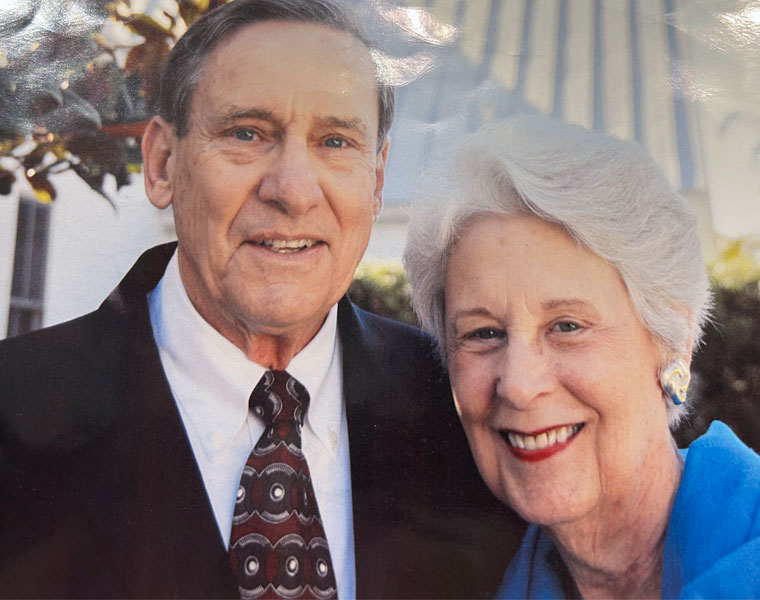Initiative aims to address dramatic increases in psychological needs with additional space and faculty dedicated to education, research, clinical collaborations and community engagement
President Eric W. Kaler announced today that Case Western Reserve University is partnering with Sara and Curt Moll on a $60 million investment to help address the growing mental health crisis within and beyond Northeast Ohio.
“The pandemic dramatically exacerbated existing challenges to psychological well-being across our region and around the country,” President Kaler said. “This commitment from Dr. Sara Moll and her husband, Curt, will have a profound impact near and far—in the short-term and for generations to come.”
The Sara and Curt Moll Institute for Mental Health and Well-Being will combine research, education, clinical collaborations and community outreach to increase the number of caregivers in greater Cleveland, catalyze breakthrough discoveries for advancing mental health, and help ensure that research-backed approaches reach the people who need them most.
“My own work as a clinical psychologist, coupled with volunteer engagement with community organizations, already had deepened my concerns for the most vulnerable among us,” Sara Moll said. “The stress and isolation that resulted from COVID-19 intensified existing struggles for many—and significantly increased the number of people needing assistance.”
Last year, for example, Cuyahoga County’s formal health needs assessment identified behavioral health as the community’s single greatest need—noting particularly urgent circumstances for children and older adults.
In February, the Centers for Disease Control and Prevention reported that 57% of teenage girls reported feeling persistently sad or hopeless, and nearly one-third reported seriously considering suicide—a figure nearly 60% higher than a decade ago.
The following month the U.S. Census Bureau found that half of those aged 18-25 reported anxiety and depression in 2023, a figure roughly a third higher than rates for all adults.
A triple-alumna and trustee of Case Western Reserve University, Sara Moll has spent her entire professional life in service to others—including as a practicing psychologist, college instructor and clinical faculty member of Case Western Reserve. Her husband, Curt, led MTD Products Inc®—a Northeast Ohio company co-founded by his father in 1932—for nearly three decades.
Watching these alarming trends in greater Cleveland and across the country, the Molls felt compelled to act. In the spring of 2022, Sara met with College of Arts and Sciences Dean Joy K. Ward to explore ways that the university could play a meaningful role in alleviating human suffering.
The two soon recognized that they shared common concerns and ideas about possible solutions, a meeting originally scheduled for an hour soon stretched to more than four.
“She is a visionary who can bring ideas to fruition,” Ward said of Moll. “She understands the needs in our community and is committed to helping people.”
As their conversations continued, solutions started to come into focus:
- First, the university’s Department of Psychological Sciences needed additional faculty—both to grow the number of clinical psychology students graduating from the PhD program, and to expand research in critical areas. Plans call for several new professors, as well as an endowed faculty position for the Moll Institute’s director.
- Second, the department needed additional space specifically designed to advance research and help bring discoveries to those who would benefit. Much of the building that housed the Frances Payne Bolton School of Nursing—just a couple minutes’ walk from the medical school—had emptied due to the 2019 opening of the Health Education Campus. With renovations, it will become a new, larger home for the psychological sciences department—and the Moll Institute—with space remaining for nursing research as well.
- Finally, the institute would serve as a hub for collaboration among faculty ranging from such disciplines as psychiatry, neuroscience and nursing—while also nurturing and expanding ongoing partnerships with community agencies and organizations.
The collaboration involves a $23.5 million commitment over time from the Molls, with the university covering the remaining costs.
“The model that Sara and Dean Ward have developed reflects their academic expertise and their sincere desire to help others,” Curt Moll said. “I have every confidence that the institute’s combination of education and research will transform individual lives and also benefit the broader Cleveland community.”

